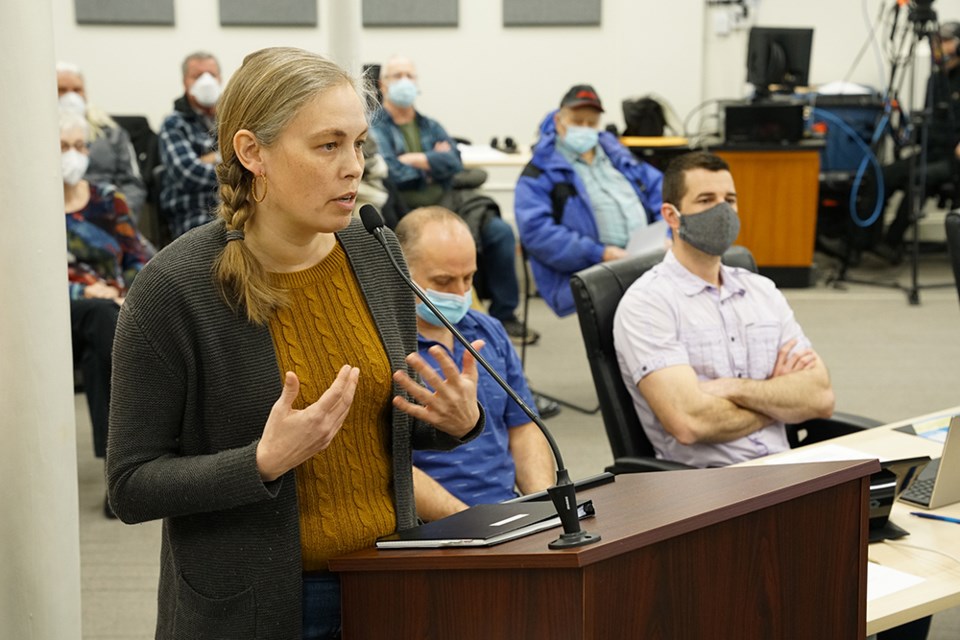City of Powell River councillors heard a presentation regarding the launch of a campaign to explore a possible name change for the city.
Trina Isakson, one of two consultants who is co-facilitating the public conversation regarding the possible name change, recently appeared at a committee of the whole meeting to update councillors on the process, including the official launch of the public engagement process for the joint working group.
“The project objective comes from the statement of work we were hired to do, built on the terms of reference of the joint working group,” said Isakson. “Our work is meant to communicate with residents about why considering a name change is important for our shared commitment to reconciliation among both [Tla'amin Nation] and the City of Powell River. It’s to foster positive conversation between the residents about the values we share in a way that builds community and pride. In this process we’re really inviting people to be curious, and kind.
“Some people may have their minds made up and some people may be more open to conversation, and we want to encourage that through this process.”
Isakson said another objective is to develop a shared understanding among residents about the harms and negative effects of colonialism, past and present. She said as part of this work, information is being shared about Israel Powell and the impact of his role as a senior government official and the impact today among Indigenous people.
Isakson said the process is also to deepen understanding, commitment and pride among residents about truth, justice and reconciliation and action, and to develop greater community consensus and understanding about the role of place naming in building a more welcoming and inclusive community.
“Our role is to facilitate public engagement, prepare with the joint working group a report, and the joint working group will submit recommendations to council, at which point, council will likely consider public input, relations with Tla’amin Nation, and come to some sort of decision on how to move forward on a possible name change,” said Isakson. “We’re very early in this process.”
Isakson said she and Lisa Moffatt, the other consultant, have been working on what they’ll be doing for public engagement. Isakson said between March, April and May, they will be conducting information sharing and soliciting information through a survey, and from that information, deciding what sort of conversations residents want to be involved in.
“Currently, the plan is to report on what we heard in June and sharing recommendations to council in July,” said Isakson.
Survey locations
Moffatt said the website had launched and there is a lot of information there. She said she has reviewed all the correspondence council has received up to the end of January to help develop the content for the website, which can be found at powellriver.ca/pnc.
The survey is open until March 25, and it can be found online, or in hard copy, at city hall, Powell River Public Library and Powell River Recreation Complex.
Moffatt said before she left for the committee meeting, she had checked the survey and there had been 230 responses.
“People are quite interested in engaging in this conversation,” said Moffatt.
Mayor Dave Formosa said he wanted to apologize to council and the public for the long period of time that it took “before we got here.”
He said a communication and education process was being set up for the public and the process is getting there.
“I’m happy to see us here today with the launch of the website,” said Formosa. “I’ve been approached by many people, mostly ones who wanted to understand why we want to change the name, and I explain to them, because if you are a person of Tla’amin and when you hear Powell, certain members take that very personally; because of residential schools, they were taken away at five years old. They still remember it. Those people are still alive today.
“It’s the hurtfulness of my friends when they hear Powell, about the fact that their culture, their language, their children were taken from them, and they feel there is a lot of evidence that blames this person that we celebrate.
“I have been pretty open that I don’t have an issue with changing the name. I was born here and my three brothers were born here, my four children were born here and my six grandchildren were born here. I will be happy with what the public wants in a name. It doesn’t necessarily have to be a First Nations name – we’ve been public about that. It’s the ‘Powell’ that hurts our friends.”
Councillor and committee of the whole chair Jim Palm reiterated that the name of the exercise was “possible name change.”
Isakson said the process is not meant to choose a name.
“It’s not part of the conversation,” said Isakson. “It’s to be in conversation about a possible name change. There’s no list of names.”



